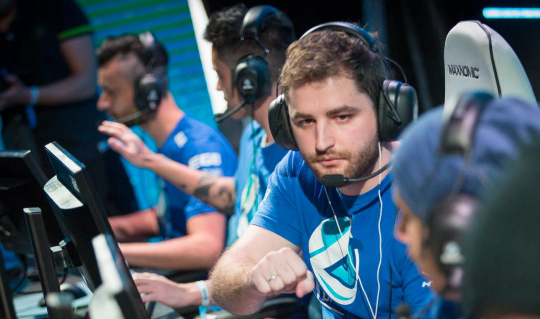ESL Reveals Plan to Clean Up Doping, Corruption, and Cheating in Esports
Governing body World Esports Association established in new bid to detoxify and legitimise the sport.
The ESL, the world's largest esports network that manages global events for games such as DOTA 2, League of Legends, and Counter-Strike Global Offensive, has announced the creation of a new governing body aimed to clean up esports.
Known as the World Esports Association, the new body will be half-owned by the ESL, while a number of famous esports teams will each control the remaining stake in the organisation. The WESA's aim is to behave in a manner similar to the IAAF in athletics, building a standardised industry-wide code of conduct for online game competitions.

"WESA is an open and inclusive organisation that will further professionalize esports by introducing elements of player representation, standardised regulations, and revenue sharing for teams," it said in a statement. "WESA will seek to create predictable schedules for fans, players, organisers and broadcasters, and for the first time bring all stakeholders to the discussion table."
This framework of rules will cover a whole range of ethical and practical issues, such as doping tests, table sizes, match fixing, and schedule clashes. Pietro Fringuelli will take on the role of the Interim League Commissioner, bringing "a wealth of experience from the sports industry, including expertise gained during his time as advisor for some of the biggest sports organisations in Europe."
Esports is a thriving segment in the games industry with a global audience estimated at $205 million and projections that the market will be valued at more than $1 billion by 2017. But esports is also a routine source of controversy too, with stories of drug use, match fixing, and hacking.
In July, 2015, the ESL partnered with Germany-based Nationale Anti-Doping Agentur (NADA) to research and determine an anti-PED policy that is "fair, feasible, and respects the privacy of players whilst simultaneously providing conclusive testing results." It also met with the World Anti-Doping Agency (WADA) to "actively involve them in the making, enforcing, and further internationalizing of its policy to regions like the US, Asia, and Australia."
In the wake of professional Counter-Strike player Kory "Semphis" Friesen openly admitting that he and his Cloud9 teammates used Adderall, the ESL implemented random PED tests at tournaments. The group's long-term goal was to perform such tests at every event in the Intel Extreme Masters, ESL One, and ESL ESEA Pro League series.
The formalisation of its policy and establishment of the WESA is a step towards detoxifying the market and helping legitimise the sport.
"The formation of WESA concludes over a year of negotiation between many teams and organisers, and it aims to bring much needed structure to a crowded esports ecosystem," the statement says. "The ESL Pro League for Counter-Strike: Global Offensive will be the first professional esports competition that will be played under WESA regulations."
WESA teams will participate in offline events "based on their scheduling and standards developed through the Association." WESA compliant teams can also participate in other leagues, whose schedules have been balanced prior to today's announcement with ESL Pro League.
Thus far eight teams have contributed to the formation of WESA. These are Fnatic, Natus Vincere, EnVyUs, Virtus.Pro, G2 Esports, Faze, mousesports, and Ninjas in Pyjamas. The WESA has said it aims to add more members and "is continuing talks with a number of organizations in Europe and North America."
The WESA features an operative Player Council, elected by the players. They will "advocate on behalf of the pro gamers in relation to league policies, rulesets, and player transfers." The council will work work alongside WESA representatives. Three quarters of all members will need to approve policies before they are enacted. Its legal framework also includes a WESA arbitration court, which is expected to deliver verdicts on issues within 48 hours.
The statement continues: "By bringing players to the discussion table, the Council will give them important insight into the balances of league decision making as well as the formation and adjustment of rules which directly affect player careers."
Ralf Reichert, chief executive of the ESL, revealed the new plans during a press conference held in London, where the body's mission statement was also laid out.
"WESA's vision is to create an authentic framework to support and amplify sustainable growth of esports, based on the shared values of fairness, transparency, and integrity, sharing that growth between the players, teams, and leagues," Reichert said, adding that it also has ambitions to establish standardised industry contracts.
The ESL is traditionally considered the world's largest esports network. It has numerous offices across North America, Europe, and Asia.
Got a news tip or want to contact us directly? Email news@gamespot.com
Join the conversation